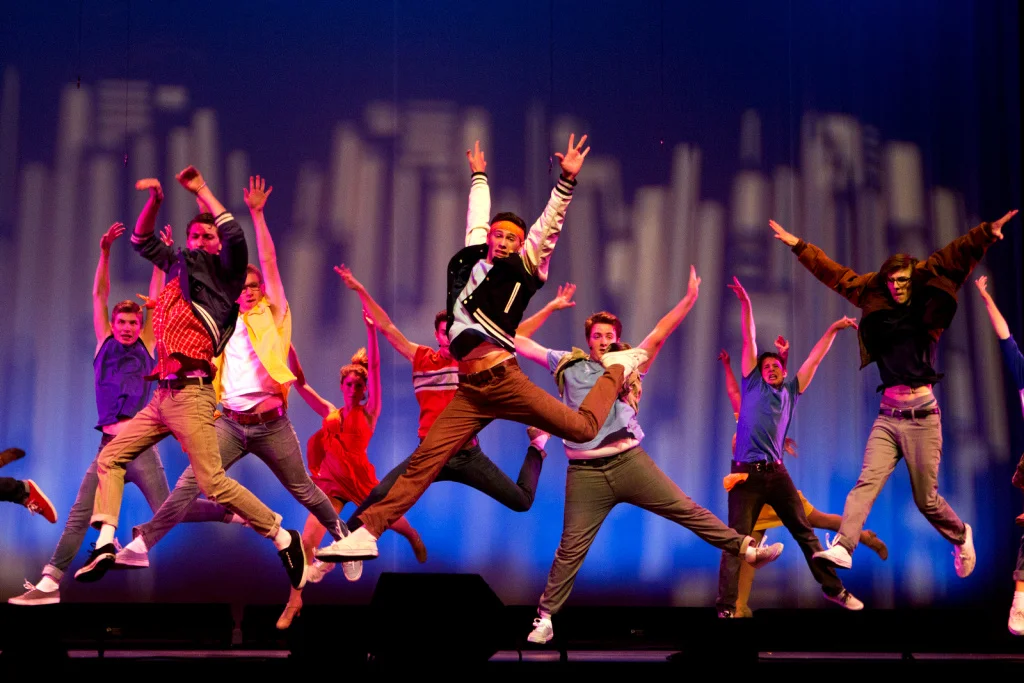As performers, we find ourselves in the dreaded “off-season” far more than we probably want to. Either work is hard to find, or we move cities, or life throws us curve balls that force us to take breaks. This time of year, college students are returning home for two weeks or more, which I recall seemed like an eternity after a semester of nonstop work.
Read MoreAs a teacher and musical theater director, I have found myself struggling. I am turning on my television, going on Facebook, or browsing the internet and seeing so many discouraging things out there. We have polar opposites vying for the presidency, violence against law enforcement and minorities, sexism, racism, whitewashing casts, and even clown threats to our society. How do we explain this to children? How do we teach them to be better human beings with compassion, humility, and understanding? What can we do as musical theater educators and community theater programs?
Read MoreWhile there has been some positive change in the theater world, there is a growing issue of things staying the same.
For the sake of ease, I’ll refer to it as The-OBC-Did-It-That-Way-Syndrome; that is to say directors forgoing their own artistic input and simply recreating the original Broadway production. It’s an issue I’ve noticed a lot recently, especially at community theater productions or amateur shows. Everything down to the costuming, set, mannerisms and blocking are taken almost 100 percent from the libretto. There is nothing inherently wrong with this – those choices were made with the original creative team and are in the script for a reason – but far too often it impedes directorial creativity and makes the amateur version feel like a pale imitation of the original. The thrill of seeing your child/brother/friend/parent on stage aside, these copycat productions do little but offer the same nostalgia as watching The Wizard of Oz on late-night television for the hundredth time.
Read MoreIt’s no secret in the theatre world that stage managing is difficult. Between creating schedules, tracking each and every change and development in rehearsal, making sure the show runs smoothly each night, and of course, managing actors and tech staff, it gets hectic. You are ultimately charged with creating order out of varying amounts of chaos. And one thing that must be kept in order is your own attitude.
Read MoreA couple of years ago, I had the chance to work on a project with a local news anchor. It involved several meetings with her. What struck me before, during and after these meetings was her behavior. Rather being a polite, gracious and a cooperative colleague, she was rude, constantly late and displayed "diva-ish" behavior. Instead of a local news anchor, it felt like we were working with a world touring singer. I found her behavior both annoying and silly. Because as a local celebrity she might be well known in her own town, but the moment she goes elsewhere, no one knows about her status and no one cares.
Read MoreIt happens every year. With budget constrictions and rising costs, schools all over the country will be forced to value how much a theatre program is worth to their students. Sadly, more often than not, these programs aren't valued enough and are eliminated.
However, during my time working in higher education, I've had the chance to speak with countless school administrators, teachers and students. What has surprised me the most, is how quick many of these schools cut their programs without looking at a plethora of options beforehand.
Read MoreI have said in another column that I would like to see school productions being more adventurous, tackling more adult themes as and when the director of drama of said school considers it appropriate. But I wanted to elaborate a bit on that. Firstly, I will always endorse the attitude that with something as ambiguous and subjective as theatre, there cannot be a universal or even a national governing body that decides anything to do with what gets put on and where. The way I see it, the theatre has always been one of the least didactic aspects of life- as a more rebellious or enthusiastic personality might say "they can't tell us what to do", and though it seems too simplistic: here, it is apt. I would rather allow schools (and by extension anyone) to produce any play they like and 'offend' a few people, than put repression of any kind upon the cultural niche I call home. You don't have to agree with me, but I thought I'd clarify that for context to this column, as when I now come to write about productions I'd like to see in schools, I shall mean versions that are unchanged, uncensored and unabridged. What's more, I would have no age restrictions on said productions. So without further ado, here are 7 plays of which I want to see an unabridged, all-accessible, school production.
Read MoreSo in my last Blog I discussed how there are some major obstacles that school theater programs are facing on a large scale. You were probably left with a lot of questions. What can be done to help remedy the situation? How can I help? What can larger organizations do to help? What can directors do to help improve their programs? I’ve compiled some easy fix answers and thought up some crazy out of the box thoughts that may help improve musical theater education in schools.
Read MoreCommunity sponsorship of school is one of the primary ways most of these programs survive. Many have their students required to sell ads or having to pay a fee. Other programs will have it done on a volunteer basis in order to meet a quota. In any event, many of the mom and pop restaurants, realtors, and other stores will support their programs however they can. They are the economic backbone of our musical theater programs and we cannot thank or applaud them enough for what they do and continue to do.
Read MoreSo in my last Blog I discussed how there are some major obstacles that school theater programs are facing on a large scale. You were probably left with a lot of questions. What can be done to help remedy the situation? How can I help? What can larger organizations do to help? What can directors do to help improve their programs? I’ve compiled some easy fix answers and thought up some crazy out of the box thoughts that may help improve musical theater education in schools.
Read More









